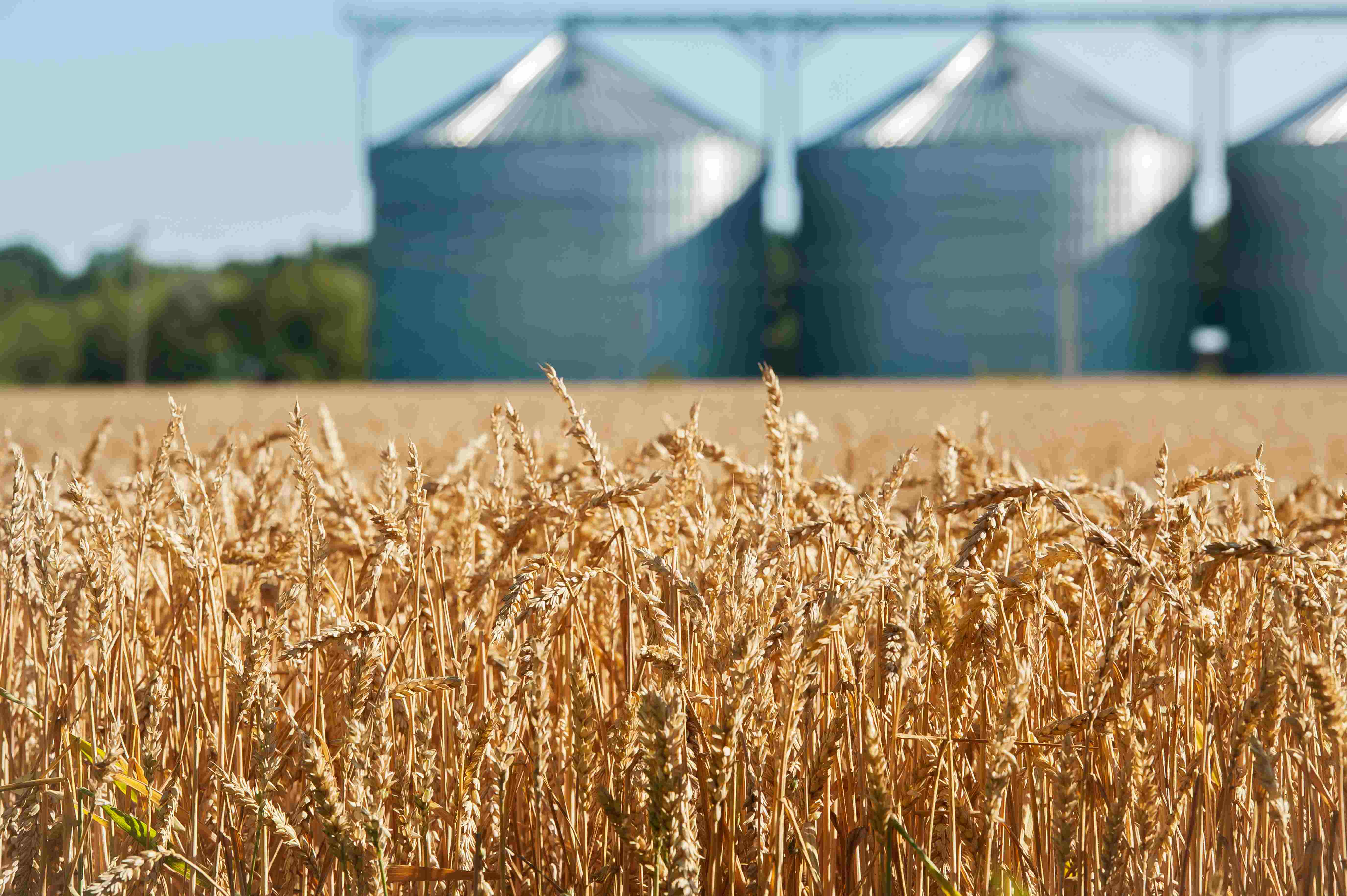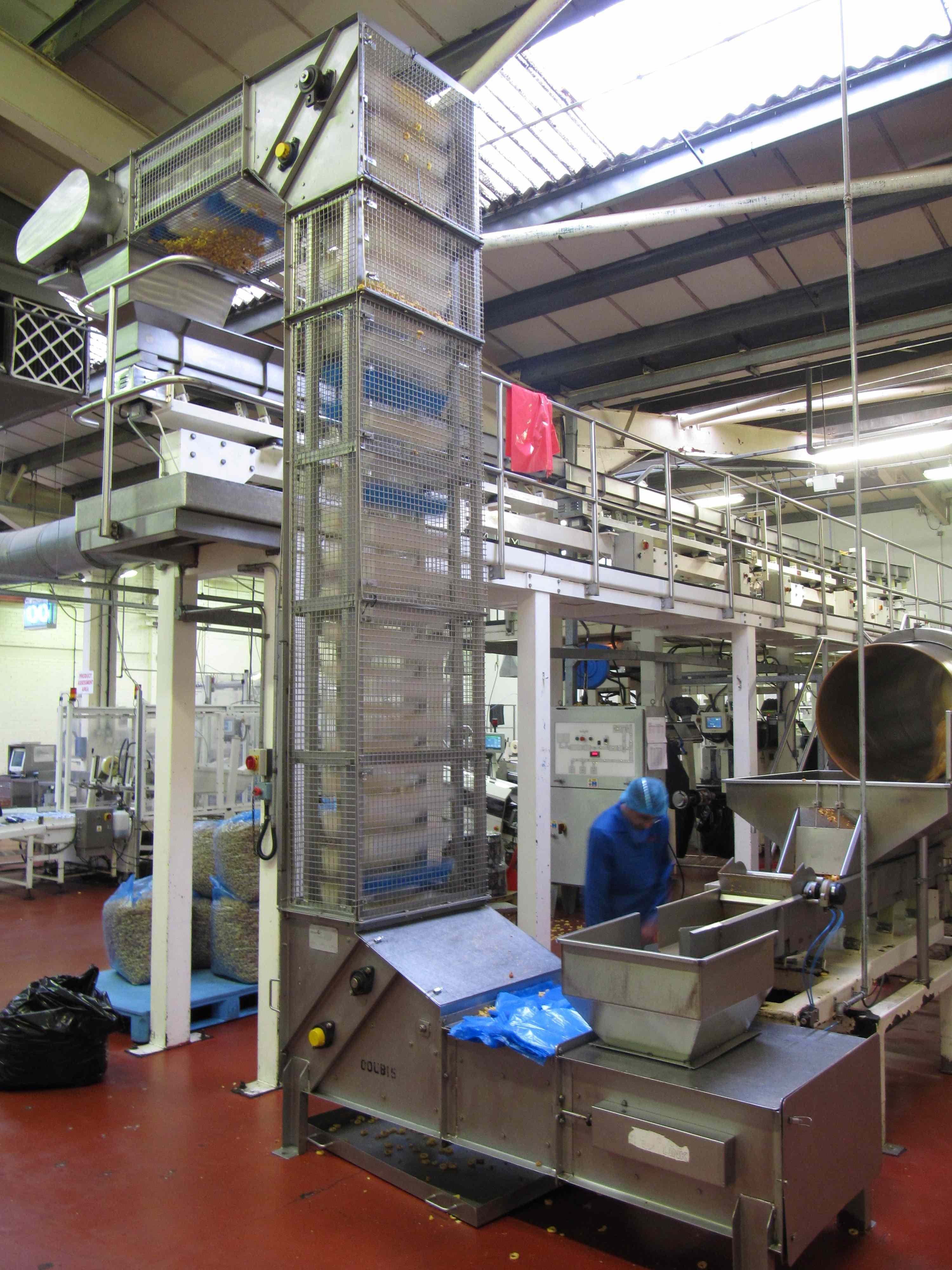There has been a surge in demand for grain-based foods in the United Kingdom. According to the Department for Environment, Food and Rural Affairs, it witnessed a remarkable 9.4 per cent increase in cereal production in 2022, reaching just under 21 million tonnes. How can food manufacturers keep up with this demand? One way is by implementing more efficient production lines. Here, Stephen Harding, managing director at the material handling expert Gough Engineering, proposes a unique solution to help maintain quality and efficiency throughout production lines.

Precision and efficiency are priorities in the production of grain-based food, and essential for manufacturers to meet food safety regulations and maintain consumer trust. To this end, it’s vital that food manufacturers maintain a seamless flow of product throughout their production lines, but issues like bottlenecks can be problematic and costly.
Bottlenecks in food manufacturing can occur when demand for a food product exceeds the capacity of the production equipment. Production bottlenecks lead to delays in subsequent processes and restrict the overall capability – e.g., in time and flexibility of operations, both factors that impede manufacturers’ profits.
As bottlenecks occur on the factory floor, they also occur in global supply chains — especially since the COVID-19 pandemic. Again, these bottlenecks can be attributed to growth versus demand. In 2021, UK factories experienced the fastest order growth since December 2017, driven by a strong domestic and gradual recovery in global markets, as reported in a survey by the Confederation of British Industry (CBI), according to Reuters.
The report also highlights the need for businesses to manage supply chain constraints. Understanding the relationship between growth and demand is crucial for maintaining production efficiency and preventing bottlenecks. Consequently, manufacturers must address issues as shortages of raw materials and rising costs to maintain throughput.
Supply chain optimisation
So, how can food manufacturers modify their production lines to avoid bottlenecks, both on the factory floor and on the global supply chain level? The answer lies in bespoke material handling solutions that are designed to streamline the flow of goods throughout the supply chain.
One example is batch sieves, which are used to separate particles of varied sizes in food production processes. Batch sieves are vital for ensuring consistent product quality and maximising production throughput, by removing impurities. To ensure food producers benefit fully from the advantages of sieves, the equipment should be bespoke designed to the unique needs of the processing application integrated within existing or new equipment.
For instance, rather than a food production line, let’s use the example of chemical processing. It may be necessary to remove ferrous material from the chemical produced during production. In this case, the batch sieve can be equipped with magnets to remove any potential ferrous material quickly and effectively. Similarly, fine material detection systems are frequently used within bulk material transfer – such as sugar.
Further contamination can be prevented by adding panels with extraction points to the sieve system, and complete hood systems can also be considered. This design feature can effectively contain airborne particles. This safeguards the produce itself, ensuring only quality and clean, uncontaminated product passes through, minimising and protecting the surrounding environment from contamination and dust or surface residue on personnel.
However, the sieve must be designed appropriately for the application and to suit manufacturer’s unique production requirements. This is where the support of a trusted material handling expert proves essential. Their partnership and design engineering expertise and experience can help the manufacturer consider factors such as mesh size, material composition and sieve capacity affecting machinery specification.
Furthermore, these bespoke design modifications to the sieve system can be applied specifically to maximise throughput and minimise clogging in the production line — thus tackling bottlenecks before they become an issue and preserving desired quality.
Enhanced efficiency
A cereal manufacturer based in Yorkshire, UK, turned to Gough Engineering to help design and implement a brand-new conveying, elevating, and feeding system. The new system was required to seamlessly connect the production and packaging sections within the factory.
Gough Engineering’s solution included commissioning four Gough Swinglink® Bucket elevators (GBE), capable of moving a range of cereal products at a rate of 1,000 kilograms (kgs) per hour. The elevator systems would employ a continuous line of swinging pendulum buckets, ensuring the efficient transfer of large volumes of product.
Moreover, these elevators can be arranged in various layouts to accommodate specific production requirements, offering versatility and adaptability. Another essential component of this solution was the integration of a Gough Linear Feeder (GLVF), which can deposit cereals at a rate of 500 kilograms (kgs) per hour.
With the new system, the cereal manufacturer was able to greatly improve its production throughput. The feeders also function as screens for chocolate-coated cereals, sifting out any abnormally sized pieces and redirecting them to a separate system. With these technologies, manufacturers are better equipped to meet surging demands, while ensuring that quality and productivity remain priorities.

If you would like to learn more about the Gough Swinglink Bucket Elevator (GBE), click here...
Sometimes the feeding of material can be achieved using a Gough Linear Vibro Feeder (GLVF) to deliver product in a control and smooth fashion. Click here for more info...
It is a superb method to protect product material whilst moving short or long distances.
Also, we offer the best support for your elevator, with parts supplies from our in-house stocks, see more on this page for general info or elevators in particular, click here...
Contact Form here...


